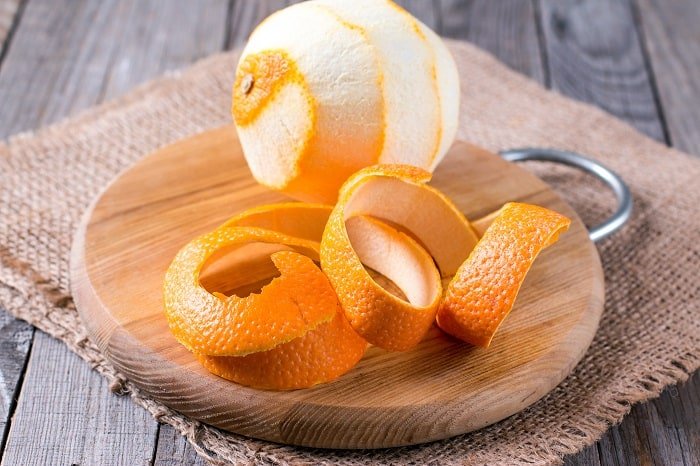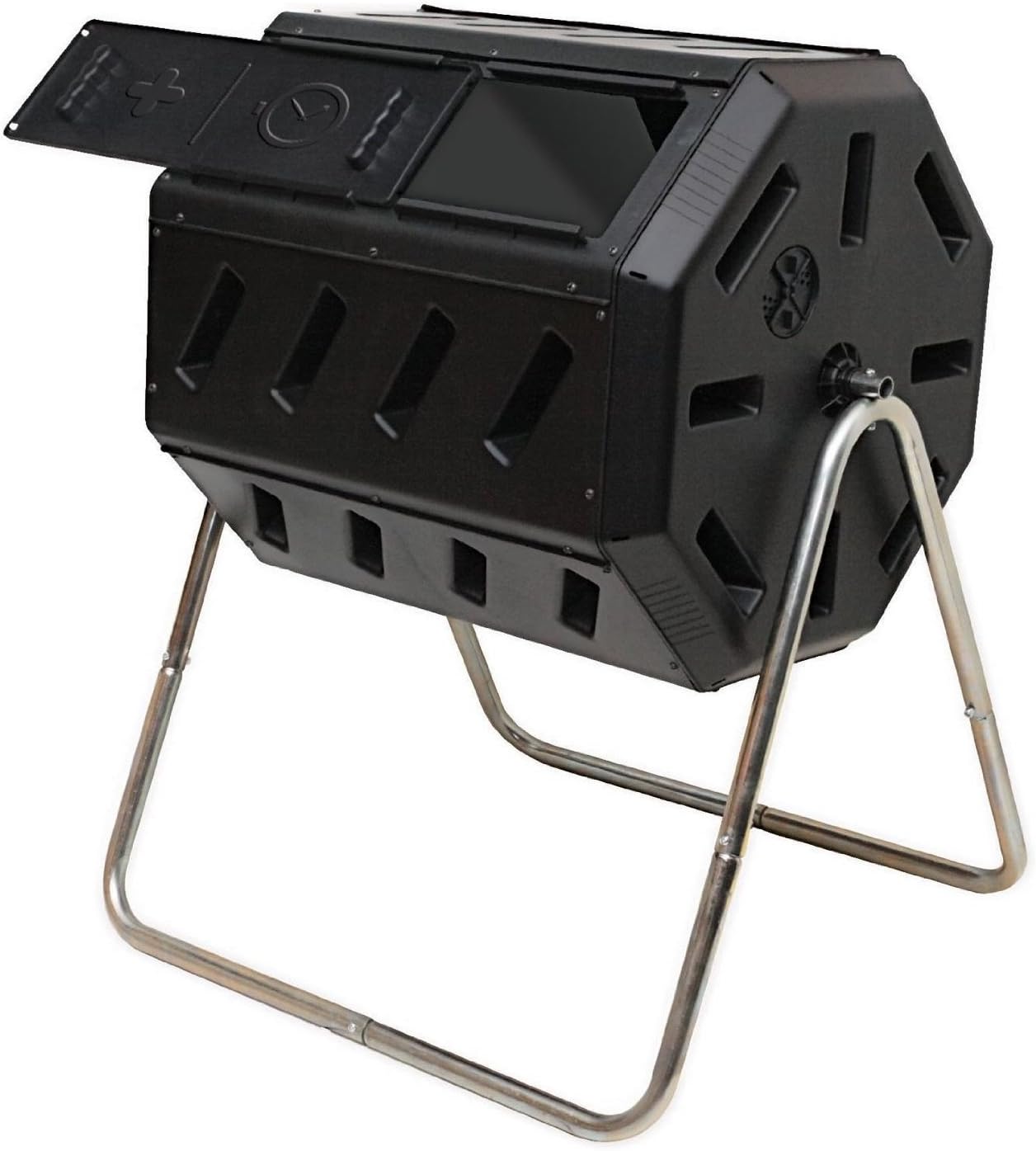In the past, it was believed that orange peels shouldn’t be included in compost bins. This was due to the belief that the addition of orange peels could scare off bugs, worms, and other organisms that encourage composting.
If you are wondering if you can compost orange peels, then you are not alone. We have been asked this question by some of our readers who are interested in knowing some of the things that can be included in the compost pile.
Can You Compost Orange Peels?
To answer the question, yes! You can add orange peels to your compost. Not only orange peels, but citrus peels are also equally good green materials to include in your compost mix.
Citrus peels are rich in nitrogen and can easily speed up the activity of microorganisms when included in your compost. Lemon peels, lime peels, grape, and other citrus peels can be tossed into your compost pile for use as a nutrient for your plants.
Orange peels aren’t just good for use in the garden for composting; they can also serve other purposes and shouldn’t be thrown away as trash. But you must know that we don’t advise you to use orange peels in vermicomposting. This is because worms actually don’t like the smell of citrus and often avoid compost piles with citrus peels in them.
When vermicomposting, you need the worms to eat off the scraps in your pile and worms don’t eat orange peels; this is why you want to avoid it in worm composting. But for traditional composting, you can add fresh orange peels without worries.

How to Compost with Orange Peels
1. Add the orange peels in small pieces
Citrus peels are rich in nutrients such as phosphorus, potassium, and nitrogen. Before adding orange peels to your compost, you will need to ensure that you cut or trim them into smaller pieces to speed up the rate of decomposition. Adding large orange peels to your compost can slow down the rate of composting. This is because it takes a longer time for large materials to get broken down by bacteria.
Learn How To Make a Homemade Compost Catalyst
2. Mix an equal ratio of green and brown materials
You can add freshly cut orange peels or already decomposing peels to your compost pile. When including orange peels in your compost, you want to ensure that there is an equal ratio of green and brown materials in your compost pile.
Orange peels are examples of rich green materials you can include in your compost bin. In addition, you can include grass clippings, vegetables, and other fruit peels and remnants to boost the nitrogen, phosphorus, and potassium content of your compost. You should also check that the materials are properly placed and not tightly compacted to allow the free flow of oxygen within the pile. When there is not enough ventilation in your compost pile, it can result in the buildup of moisture which can cause your compost to smell.
Check these 5 Best Urban Compost Tumblers
3. Keep your compost with proper ventilation and temperature
There are also claims that adding citrus peels to your compost can encourage the growth of Penicillium mold. But other factors make us doubt this possibility. This is because there when you follow good composting practices, your compost pile will be occasionally hot which would not encourage the growth of Penicillium mold. The molds do better in cooler environments and wouldn’t grow in a hot compost pile.
The only time you will find mold on your citrus peels is if there is not enough heat in the pile. Keep your compost bin in areas where it can get direct sunlight and proper ventilation.
Other Things You Can Do with Orange Peels in Your Garden
Apart from being a rich source of nutrients for composting, orange peels can also serve other purposes in your garden. We are happy to inform you that you can also use orange peels for
As an Insect Repellant When Working in Your Garden
You can rub orange peels on your skin to ward off mosquitoes when you are busy in your garden. Mosquitoes are indeed a big issue in the garden. While they might not do much damage to your plants, they can make your time in the garden a little unbearable. With the help of orange peels, you can make a quick insect repellant that can serve as a remedy against mosquito bites before going into your garden.
Use Orange Peels as an Organic Pesticide
Orange peels can also be used as an organic pesticide in the garden. They are particularly potent against pests such as whitefly and aphid. To make your home-made pesticide using orange peels, simply
- Add a few slices of orange peels into three cups of water and boil for 15 minutes.
- Turn off the heat and allow the orange peels to steep in the water for another 15 minutes.
- Once the water is cool, take out the orange peels and transfer the liquid into a spray bottle.
- You can now use the spray on garden pests to keep them out of your garden.
Use Orange Peels to Freshen Your Compost
You can also include fresh orange peels in your compost to reduce the smell. You want to ensure that you also balance out by adding some brown materials too to the pile. Throw in a few pieces of newspaper to keep things intact.

Can You Compost Citrus?
You can safely compost citrus fruits like oranges, lemons, and limes. But you should only use them in moderation.
Citrus fruits are acidic and can lower the pH of your compost pile. This can, in turn, slow down the decomposition process and make it more difficult for beneficial microorganisms to thrive.
Here are a few things to keep in mind when composting citrus fruits:
Avoid Composting Citrus Peels: Citrus peels can take a long time to decompose and may attract pests. It’s best to keep them out of your compost pile.
Cut Them Up: If you cut citrus fruits into small pieces, the decomposition process will be sped up.
Monitor The pH Levels: Keep a close eye on the pH level of your compost pile. If it becomes too acidic, add lime or wood ash to neutralize it.
Can Worms Eat Orange Peels
Worms can eat orange peels, but it isn’t the best food choice for them. Orange peels lack sufficient nitrogen and may not provide worms with the necessary nutrients for optimal growth.
Orange peels are also acidic and can lower the pH of your compost pile. These conditions can make it challenging for worms to thrive.
Worms thrive in a neutral pH environment, so if you use worm composting (vermicomposting), it’s best to avoid adding too many citrus peels. You should also monitor the pH of the bedding materials and the composting environment to prevent acidity.
Are Orange Peels Good For Plants
Orange peels can be good for plants, but you always have to use them in moderation. Since orange peels are so acidic, it can lower
However, orange peels are rich in calcium, potassium, and magnesium. Here’s how you can use them in your garden to benefit your plants:
Composting: You can add orange peels to your compost pile. They will break down and add nutrients to the
Mulch: Orange peels make a great mulch around acid-loving plants like blueberries, raspberries, and azaleas.
Fertilizer: You can dry and grind orange peels to make a granular natural fertilizer for your plants.
Pest Control: Orange peels deter pests like ants and aphids.
Conclusion
You can add orange peels to your compost to add more nitrogen to the mix. We only suggest that you make use of orange peels in traditional composting and not in vermicomposting (worm composting). Apart from orange peels, you can also add other citrus peels to your compost pile. It is important that you cut the peels into smaller pieces before adding them to your compost bin.

Josephine is an enthusiastic gardener who loves to spend her spare time tending to her garden. She is passionate about growing her own food, and aspires to one day have her own vegetable garden. Josephine is also an animal lover and often takes in stray cats and dogs. She enjoys spending time with her pets in the garden, and is often seen playing with them or watering her plants. Josephine is an avid reader and enjoys learning about new gardening techniques and plants. She is always looking for ways to improve her garden and make it more beautiful. She is a great friend, always willing to lend a helping hand when needed. Josephine‘s passion for gardening and love of animals make her a wonderful addition to any garden.





